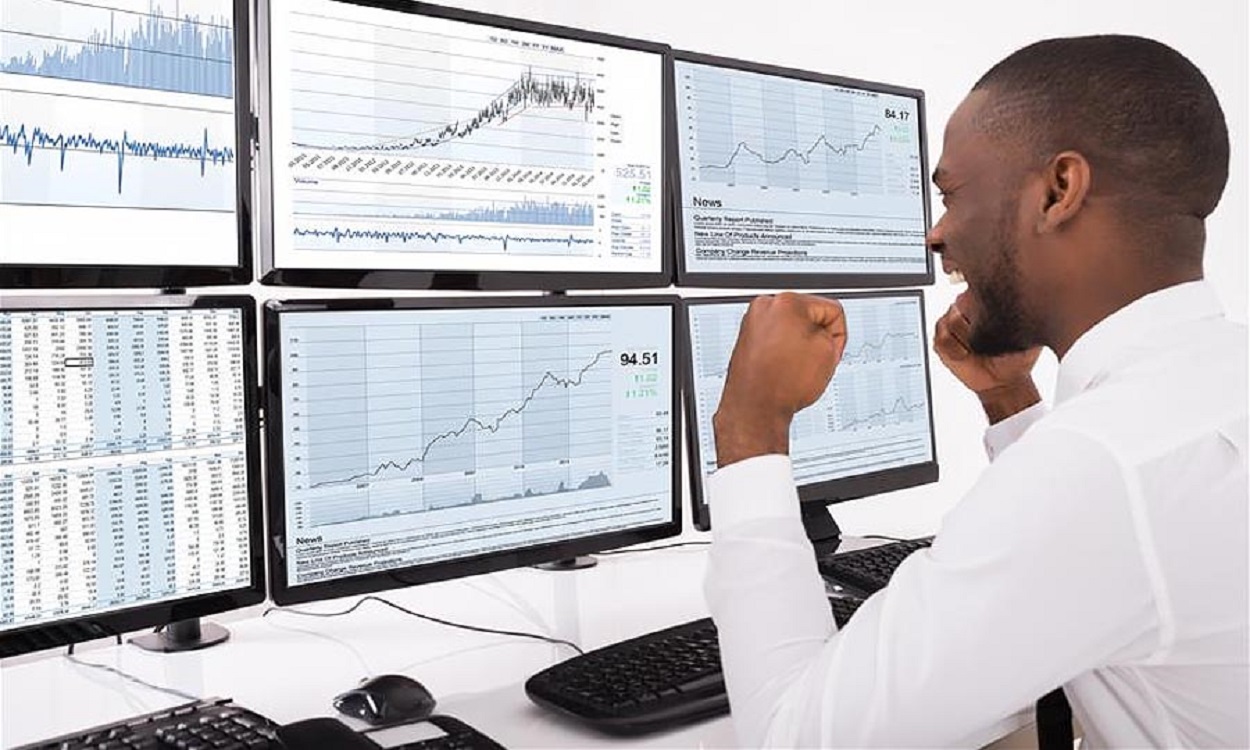Business
Why Digital Trading Platforms are Essential for Today’s Trader

Digital trading platforms have become an indispensable tool for traders in today’s financial markets. As technology continues to evolve and markets become more accessible, having a good trading platform is crucial for executing trades efficiently and capitalising on short-term opportunities. In this article, we’ll explore why digital trading platforms are essential for the modern-day trader.
Accessibility and Convenience
One of the biggest benefits of digital trading platforms is the increased accessibility and convenience they provide. Today’s platforms allow traders to monitor and execute trades anytime, anywhere through desktop, web, and mobile apps. This gives traders flexibility to manage their positions and capitalise on opportunities as they arise, without being physically present on a trading floor or calling a broker.
The CFD trading app in particular has made it easier than ever for traders to speculate on price movements of various instruments without owning the underlying assets. These apps put the power of trading contracts for difference (CFDs) on forex, stocks, indices, commodities and more right at your fingertips.
Platforms like MetaTrader 4/5 and TradingView also provide traders with customisable layouts, advanced charting tools, screening capabilities, and more – all aimed at enhancing accessibility and efficiency. The convenience of modern platforms makes it possible to trade on the go, while travelling, or even from the comfort of your home.
Powerful Analytics and Automation Tools
Another reason digital platforms are a must-have is the wide array of powerful analytics and automation tools they provide. From advanced technical indicators and chart pattern recognition, to risk management tools, backtesting capabilities, and built-in trading signals – today’s platforms offer traders an extensive toolbox.
These tools allow traders to conduct faster analysis, test strategies, identify opportunities, and even automate their trades through expert advisors (EAs) and bots. With the right analytics toolkit, traders can significantly enhance their edge in the marketplace. The automation tools also help free up time for traders to focus on devising their strategies.
Access to Global Markets and Asset Classes
Modern trading platforms open up access to a diverse range of global markets across various asset classes like forex, stocks, futures, options, commodities, and more. Traders are no longer limited to specific exchanges and can diversify their trading across multiple markets through a single platform.
This provides greater opportunities to capitalise on market moves and hedge risks across asset classes. Traders can also take advantage of arbitrage opportunities, tax efficiencies, and trade 24/7 across time zones. The flexibility to trade global markets gives traders an edge that would be difficult to achieve otherwise.
Reduced Trading Costs
Digital platforms can significantly reduce costs associated with trading through lower commissions, exchange fees, and tighter bid-ask spreads. The costs of trading through traditional brokers acting as intermediaries are also eliminated.
Many platforms offer discounted rates, flat monthly fees, or per trade commissions as low as $1-$5 per trade. The reduced overhead costs in the digital space get passed down to the traders. Lower trading costs mean better profit margins for successful traders.
Some platforms also provide free real-time quotes, news, and research. The tools required for analysis and execution are bundled into an all-in-one solution. These savings on costs give traders higher returns on their capital.
Demo Accounts and Educational Resources
For new traders, digital platforms also provide the benefit of demo accounts and a wealth of educational resources. Aspiring traders can open a demo account to virtually trade markets risk-free before putting real capital on the line.
The simulated environment allows traders to test out strategies and gain familiarity with the platforms before diving into live trading. Platforms also offer a deep library of educational materials, daily news, tutorials, training programs, and more to help accelerate a trader’s learning.
The abundance of learning resources combined with risk-free demo trading accounts also makes digital trading more accessible to beginners. The learning tools can help new traders shorten the learning curve.
Enhanced Security for Funds
Digital trading platforms also provide enhanced security measures for safeguarding trader’s funds. Through encryption, multi-level authentication, segregated client accounts, and strict regulatory compliance, platforms provide robust protection of deposits and profits.
Traders need not worry about mismanagement of funds by brokers or opaque practices. The banking-grade security gives traders confidence in the safety of their capital. The security infrastructure maintains the integrity of the trading environment against fraud and cybercrime.
Access to New Advancements
Finally, digital platforms allow traders to readily access new advancements in the field as technology progresses. Through continuous platform updates, traders can take advantage of emerging technologies like AI, machine learning, and automation to enhance their trading.
Digital platforms aim to be at the forefront of innovation in the trading sphere. If a new tool or feature that can give traders an edge emerges, they can expect to find it on their trading platform. The digital space brings traders closer to the future of trading.
As you can see, digital trading platforms have become a critical component of success for traders in today’s markets. The accessibility, advanced toolset, global reach, reduced costs, security, and innovation that platforms provide give traders an edge that is otherwise unattainable.
While the trader’s skill, strategy, and discipline ultimately dictate their profitability, having a robust and reliable digital platform enhances their efficiency and capabilities significantly. As technology progresses, trading platforms will continue to evolve as well – and embracing these digital advancements can be the difference between leading versus lagging behind the markets.
